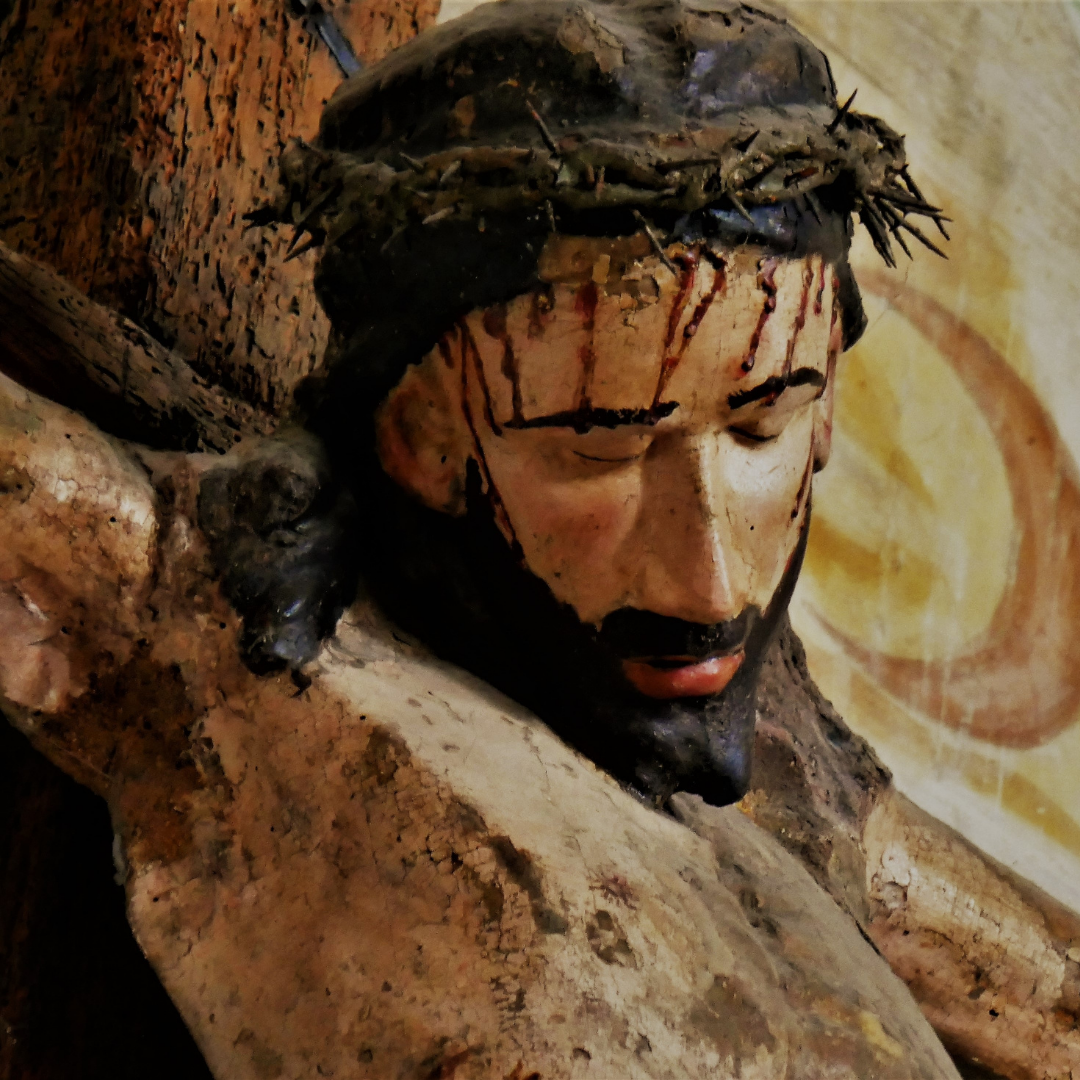
Flávia Ghelardi discusses the spiritual impact of our reluctance to forgive.
Flávia Ghelardi writes from Brazil in English and Portuguese. Vá para a versão em português.
I don't want to forgive. It's not fair. This person hurt me too much. And what's worse: he has not repented and has not asked for forgiveness.
And now what? Does this attitude of not wanting to forgive really do me any good? When someone causes me harm, this offense directly affects my sense of justice. And justice demands reparation for the wrong done and the punishment of the one who has offended.
But forgiveness is beyond justice: it enters the realm of mercy.
"Blessed are the merciful, for they will be shown mercy." (Matthew 5:7)
Mercy implies giving to the other what he is NOT entitled to. And what should move us to act with mercy, is love.
St. Paul urges us:
Put on then, as God’s chosen ones, holy and beloved, heartfelt compassion, kindness, humility, gentleness, and patience, bearing with one another and forgiving one another, if one has a grievance against another; as the Lord has forgiven you, so must you also do. And over all these put on love, that is, the bond of perfection. (Colossians 3:12)
Forgiveness sets us free
We are invited to put mercy and forgiveness into practice. But why? It is because forgiveness sets us free. The one who keeps dwelling on the facts, reliving the events that wounded his heart, remains a slave of the one who offended him. A slave—because he is not free and cannot live without thinking about that offense.
When we manage to forgive, we feel lighter, happier, and even generate a feeling of compassion for the one who offended us. We are also able to free ourselves from the past, from trying to change what has already happened, or imagining how everything would be if the offense had not happened.
Awareness of our own limitations
Forgiving is not forgetting, nor pretending that nothing happened. Forgiving is to make the decision that the fault that the other person committed against you will no longer bother you. And for this, the person needs to be aware that she also makes mistakes, that she also hurts, and that she always needs the other's forgiveness.
The greater the awareness that we are limited beings, that we often make mistakes, that we always need forgiveness, especially from God, the easier it will be to forgive the mistakes of others, especially those who live with us on a daily basis.
We should think: if I had been born in the same family as the person who offended me, suffered the same traumas, received the same education, I might even act much worse than the person who hurt me. We must try to remove the layers of defects and even evil from this person, to see the good that is certainly in his heart.

Forgiveness is not a solution for an offense
Forgiveness is not becoming indifferent. It is not a solution for an offense to become cold or callous in the face of evil. It involves suffering, feeling the pain, and then forgiving and excusing the one who has offended. Forgiving means that the love we feel is so great that it overcomes the offense.
The fact that I have forgiven the person does not necessarily mean that I need to live with him or her, or restore the level of intimacy that existed before the offense. We don't need to expose ourselves to being offended again, but we must learn to live together without resentment.
Forgiving is not easy, but it is possible
Forgiving is not an easy attitude. Depending on the degree of the offense, on the depth of the scar left, forgiveness can take a long time to be achieved.
There is no need to be in a hurry. What is urgent is to decide that you will forgive and that that fault, that hurt, will no longer imprison you. We must always ask God for the grace of forgiveness. Approach the heart of Jesus, who has an effective balm to heal the wounds in your heart. Without God's grace, it is not possible to forgive, because our nature, wounded by original sin, is proud and always tends to think of itself, of its wound, looking at events only from its point of view. The proud cannot forgive. It takes humility to ask forgiveness and to forgive.
Tools to achieve forgiveness
The Sacrament of Reconciliation (Confession) is a very important means of achieving forgiveness, both of oneself and of others. It is a sacrament of healing, which restores the soul and brings inner peace. It may take a long time to forgive, but Confession is a real medicine that we take until it works.
Another tool that we can use to help us to be merciful is the "Rosary of forgiveness". We use an ordinary Rosary, we start with the Apostoles Creed, Our Father and 3 Hail Marys. For the five mysteries, we pray the Our Father and on the beads, instead of praying the Hail Mary, we pray, "I forgive (speak the person's name) and she forgives me." When you finish the 5 decades, pray the Hail Holy Queen.
How do I know that I have forgiven someone?
We know that we managed to forgive when we remember what happened, without that memory bringing something bad, something disturbing. Forgiveness makes us remember, but we stay light, it doesn't weigh our heart down.
Forgiveness is fundamental and needs to be given always and in the little things, from something that irritates you and that the person does without knowing it to the things that the person does consciously to irritate and hurt you. Forgiveness restores balance to the relationship, and when it is denied, it can cause numerous diseases, including cancer and other autoimmune diseases.
Let's follow the example of Jesus who taught us to pray, "forgive us our trespasses as we forgive those who trespass against us."
And also on the Cross, He asked,
“Father, forgive them, they know not what they do." (Luke 23:34)

Click to tweet:
Forgiveness is beyond justice: it enters the realm of mercy. #catholicmom
Eu não quero perdoar
Eu não quero perdoar. Não é justo. Essa pessoa me magoou demais. E o pior: não se arrependeu e não pediu perdão.
E agora? Será que essa atitude de não querer perdoar realmente me faz bem? Quando alguém me causa um mal, essa ofensa atinge diretamente o meu sentimento de justiça. E a justiça exige reparação para o mal cometido e a punição daquele que ofendeu.
Porém o perdão está além da justiça, ele entra no âmbito da misericórdia.
“Bem-aventurados os misericordiosos, porque alcançarão a misericórdia” (Mt 5,7)
A misericórdia implica em dar ao outro aquilo que ele NÃO tem direito. E o que deve nos mover a agir com misericórdia, é o amor.
São Paulo nos exorta:
"Portanto, como eleitos de Deus, santos e queridos, revesti-vos de entranhada misericórdia, de bondade, humildade, doçura, paciência. Suportai-vos uns aos outros e perdoai-vos mutuamente, toda vez que tiverdes queixa contra outrem. Como o Senhor vos perdoou, assim perdoai também vós. Mas, acima de tudo, revesti-vos da caridade, que é o vínculo da perfeição." (Col 3, 12-14)
O perdão liberta
Somos convidados a colocar em prática a misericórdia e o perdão. Mas por quê? É porque o perdão nos liberta. Aquele que fica remoendo os fatos, revivendo os acontecimentos que feriram o seu coração, permanece escravo daquele que o ofendeu. Escravo porque não se liberta e não consegue viver sem pensar naquela ofensa.
Quando conseguimos perdoar, nos sentimos mais leves, mais felizes, gerando até um sentimento de compaixão por aquele que nos ofendeu. Conseguimos também nos libertar do passado, de ficar tentando modificar o que já aconteceu ou ficar imaginando como tudo seria se aquela ofensa não tivesse acontecido.
Consciência das próprias limitações
Perdoar não é esquecer e nem fingir que não aconteceu nada. Perdoar é tomar a decisão de que aquela falta que o outro cometeu contra si não vai mais lhe incomodar. E para isso, a pessoa precisa ter a consciência de que também erra, de que também magoa e que precisa sempre do perdão do outro.
Quanto maior for a consciência de que somos seres limitados, de que frequentemente cometemos erros, de que sempre precisamos do perdão, principalmente de Deus, mais fácil será perdoar os erros do outro, principalmente os daqueles que convivem diariamente conosco.
Devemos pensar: se eu tivesse nascido na mesma família da pessoa que me ofendeu, sofrido os mesmos traumas, recebido a mesma educação, poderia até agir muito pior que essa pessoa que me magoou. Precisamos procurar remover as camadas dos defeitos e até das maldades dessa pessoa, para enxergar o bem que certamente há em seu coração.
O perdão não é uma solução para ofensa
O perdão não ficar indiferente. Não é uma solução para ofensa, ficar frio ou insensível perante o mal. Implica sofrer, sentir a pena e depois perdoar e desculpar quem ofendeu. Perdoar significa que o amor que sentimos é tão grande que vence a ofensa.
O fato de ter perdoado a pessoa não significa necessariamente que preciso conviver com ela ou reatar o nível de intimidade que havia antes da ofensa. Não precisamos nos expor a sermos ofendidos novamente, mas devemos aprender a ter uma convivência sem rancores.
Perdoar não é fácil, mas é possível
Perdoar não é uma atitude fácil. Dependendo do grau da ofensa, da profundidade da cicatriz deixada, o perdão pode demorar muito tempo para ser alcançado.
Não é preciso ter pressa. O que é urgente é decidir que irá perdoar e que aquela falta, aquela mágoa, não irá mais lhe aprisionar. Devemos sempre pedir a Deus, a graça do perdão. Aproximar-se do coração de Jesus, que tem um bálsamo eficaz para curar as feridas do seu coração. Sem a graça de Deus, não é possível perdoar, pois a nossa natureza ferida pelo pecado original é orgulhosa e tende sempre a pensar em si mesma, em sua ferida, olhando os acontecimentos somente pelo seu ponto de vista. O orgulhoso não perdoa. É preciso humildade para pedir perdão e para perdoar.
Ferramentas para conseguir perdoar
O Sacramento da Reconciliação (Confissão) é um meio importantíssimo para conseguir o perdão, tanto de si mesmo, como perdoar os demais. É um sacramento de cura, que restaura a alma e traz a paz interior. Pode demorar muito tempo para conseguirmos perdoar, mas a Confissão é um verdadeiro remédio, que vamos tomando até fazer efeito.
Outro instrumento que podemos usar para nos ajudar a sermos misericordiosos é o “terço do perdão”. Usamos um terço comum, iniciamos com o Creio, Pai Nosso e 3 Ave Marias. Nos mistérios, rezamos o Pai Nosso e nas contas, ao invés de rezar a Ave Maria, rezamos: “eu perdoo (falar o nome da pessoa) e ela me perdoa.” Quando acabar as 5 dezenas, rezar a Salve Rainha.
Como sei que perdoei alguém?
Sabemos que realmente conseguimos perdoar quando lembramos do acontecido, sem que essa memória traga algo de ruim, de perturbação. O perdão faz com lembremos, mas ficamos leve, não pesa o coração.
O perdão é fundamental e precisa ser dado sempre e nas pequenas coisas, desde algo que o irrita e que a pessoa faz sem saber até as coisas que ela faz conscientemente para irritá-lo e magoá-lo. O perdão devolve o equilíbrio ao relacionamento e quando ele é negado, pode causar inúmeras doenças, inclusive o câncer e outras doenças autoimunes.
Vamos seguir o exemplo de Jesus que nos ensinou a rezar: "perdoai-nos as nossas ofensas, assim como nós perdoamos aos que nos ofenderam" (Mt 6,12).
E também na Cruz, pediu:
"Pai, perdoa-lhes; porque não sabem” (Lc 23,34).
Copyright 2022 Flávia Ghelardi
Images: Canva Pro
About the Author

Flávia Ghelardi
Flávia Ghelardi is the mom of four, a former lawyer already "promoted" to full time mom. Flávia published her first book FORTALECENDO SUA FAMÍLIA and is a member of Schoenstatt´s Apostolic Movement. Flávia loves to speak about motherhood and the important role of women, as desired by God, for our society. She blogs at www.fortalecendosuafamilia.blogspot.com.


.png?width=1806&height=731&name=CatholicMom_hcfm_logo1_pos_871c_2728c%20(002).png)
Comments